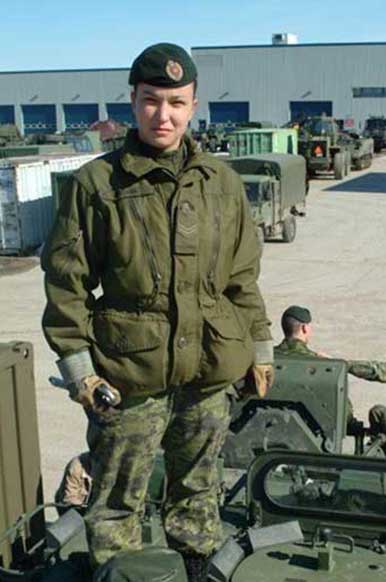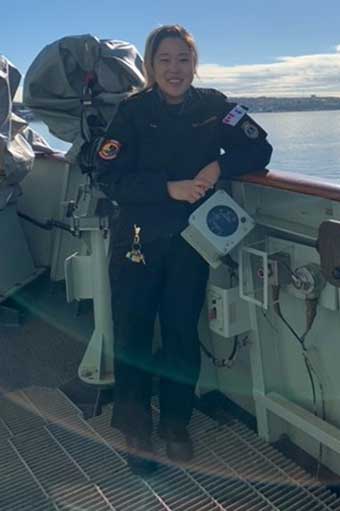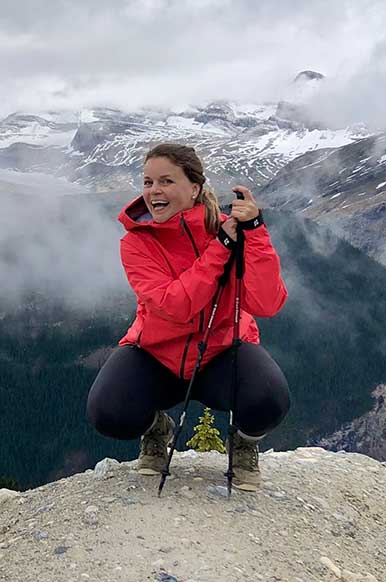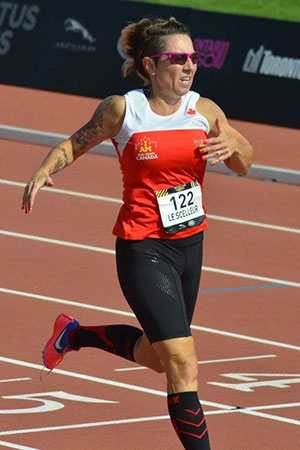Lieutenant-Colonel (Ret’d) Lyna Gravel
In high school, Lyna Gravel was planning on becoming an oceanographer. When she found out she could do this work in the Royal Canadian Navy, she decided to attend the Royal Military College. Instead of a degree in oceanography, she obtained a bachelor’s degree in civil engineering and had a career in logistics.
Bosnia and Herzegovina Egypt
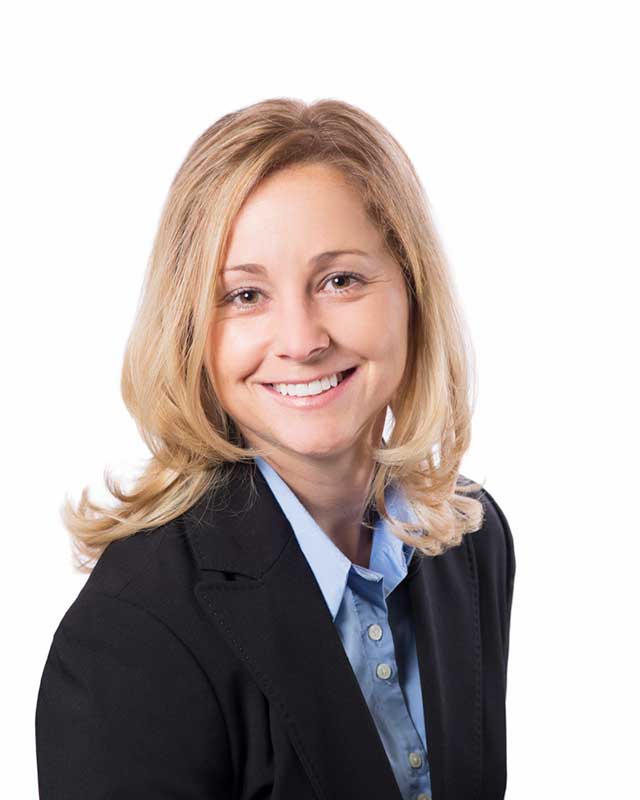
Joined
1992
Postings
- 1992-1997: Royal Military College, Kingston, ON
- 1997-2005: Valcartier, QC
- 2006-2007: Ottawa, ON
- 2008: Valcartier, QC
- 2009: Montréal , QC
- 2010: Canadian Forces College, Toronto, ON
- 2011-2013: Ottawa, ON
- 2013-2015: Montréal, QC
Deployments
- 1999-2000: Bosnia
- 2005: Egypt-Sinai Peninsula
To help her choose a career, one of Lyna Gravel’s high school teachers talked to her about the program that would allow her to study oceanography in the Canadian Armed Forces (CAF). The program was offered jointly with the Royal Roads Military College in British Columbia and the University of Victoria.
However, fate had other plans in store for her. After it was announced that the Royal Roads College was closing, all students were transferred to the Royal Military College in Kingston, Ontario. That’s where Gravel switched to civil engineering.
“We couldn’t be oceanographers in the army and, since the program didn’t exist anymore, I was no longer interested in staying in the navy. I altered course and decided to go into civil engineering,” she says.
Once she had her degree, she was posted to the Valcartier base in 1997, and began working in logistics. It’s thanks to her experience in this field that she left for Egypt in 2005 with 32 other CAF members loaned on a rotating basis to the Multinational Force and Observers in the Sinai.
The Force was established in 1982 following the 1978 Camp David Accords, which ended the conflict in Sinai. “It’s a mission aimed at ensuring that the treaty between Egypt and Israel on the Sinai Peninsula is upheld. It’s not a UN ‘blue helmets’ mission, they’re called ‘orange’ helmets.”
“At the time, there were 20 million people in daytime, it was completely destabilizing. There was no code of conduct in Egypt.”
For Gravel, who was in charge of managing and procuring the Force’s vehicles, this mission would be extremely different from her previous one in Bosnia and Herzegovina.
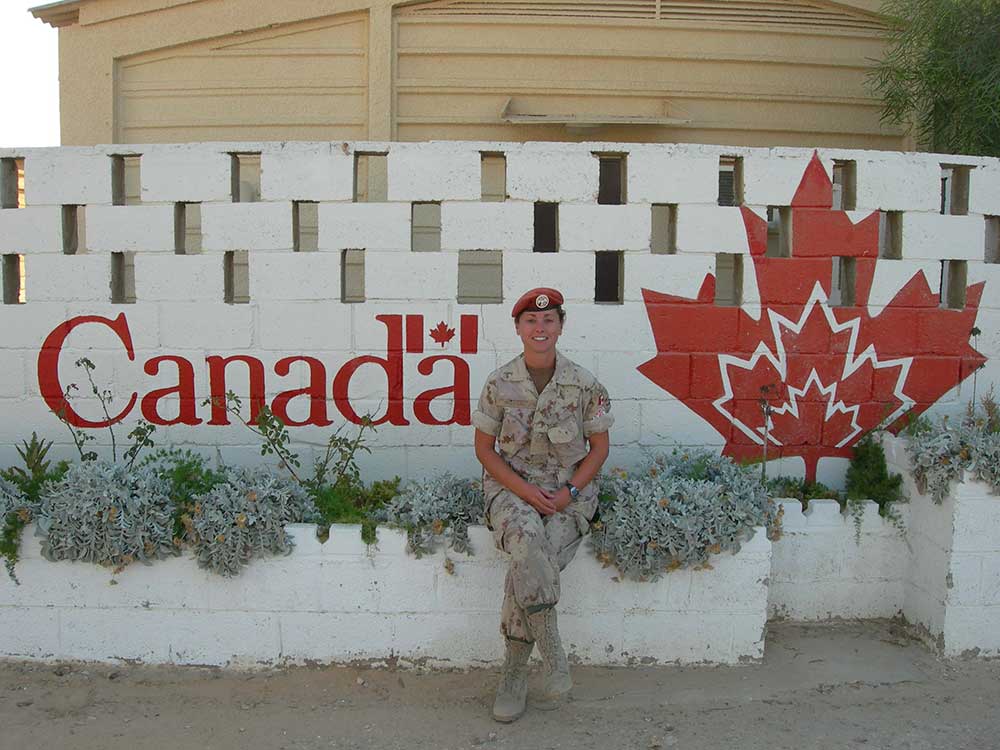
Lieutenant-Colonel Gravel in 2005, during her mission in Egypt.
When she arrived in Cairo, she said she experienced “complete culture shock”. “At the time, there were 20 million people in daytime, it was completely destabilizing. There was no code of conduct in Egypt. When we went to Afghanistan or Bosnia, we were in uniform on the plane with only other CAF members. It wasn’t like that when we arrived in Egypt. We took a commercial flight. We barely knew the people who were going to be posted with us.”
Her culture shock didn’t last long. She quickly became used to the local customs and appreciated the freedom of movement thanks to the mission’s less restrictive character. “The climate was nice. We were allowed to leave camp and go to Cairo or Tel Aviv for the weekend. My own work (equipment procurement) often took place in Israel ... so, at the beginning of the mission, it was possible to travel.”
“The Force then decided to purchase armoured vehicles to protect its soldiers because what was happening in Afghanistan was starting to happen in the Sinai Desert, and the Force wasn’t equipped to handle IEDs.”
Circumstances changed in October 2005. Attacks in Sinai by the Muslim Brotherhood led to a significant increase in protective measures for the Force. Two Canadians hit an improvised explosive device (IED).
“The Force then decided to purchase armoured vehicles to protect its soldiers because what was happening in Afghanistan was starting to happen in the Sinai Desert and the Force wasn’t equipped to handle IEDs.” Authorizations to go out alone were also rescinded and Force vehicles now had to go out in a convoy.
When she returned to Canada, Gravel was posted to Ottawa, where she continued working in procurement and purchased armoured vehicles for the mission in Afghanistan.
After making plans for her release, but hesitating a few years before requesting it, Gravel left the CAF in February 2015 to achieve a better work-family balance for herself. “I’m the first person to say that the Canadian Armed Forces is life’s greatest school.”
She’s now Assistant Director general at a community organization that helps children with multiple disabilities.
With courage, integrity and loyalty, Lyna Gravel has left her mark. Discover more stories.
You can also listen to her Faces of Freedom podcast episode.
Where they served
- Date modified:









